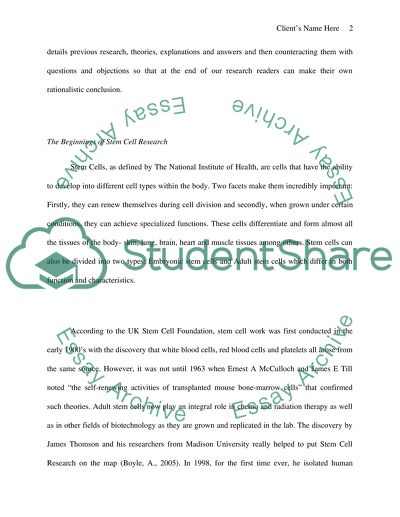Cite this document
(“Stem cell research Paper Example | Topics and Well Written Essays - 1500 words”, n.d.)
Retrieved from https://studentshare.org/other/1395018-stem-cell-research
Retrieved from https://studentshare.org/other/1395018-stem-cell-research
(Stem Cell Research Paper Example | Topics and Well Written Essays - 1500 Words)
https://studentshare.org/other/1395018-stem-cell-research.
https://studentshare.org/other/1395018-stem-cell-research.
“Stem Cell Research Paper Example | Topics and Well Written Essays - 1500 Words”, n.d. https://studentshare.org/other/1395018-stem-cell-research.


